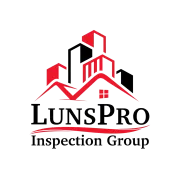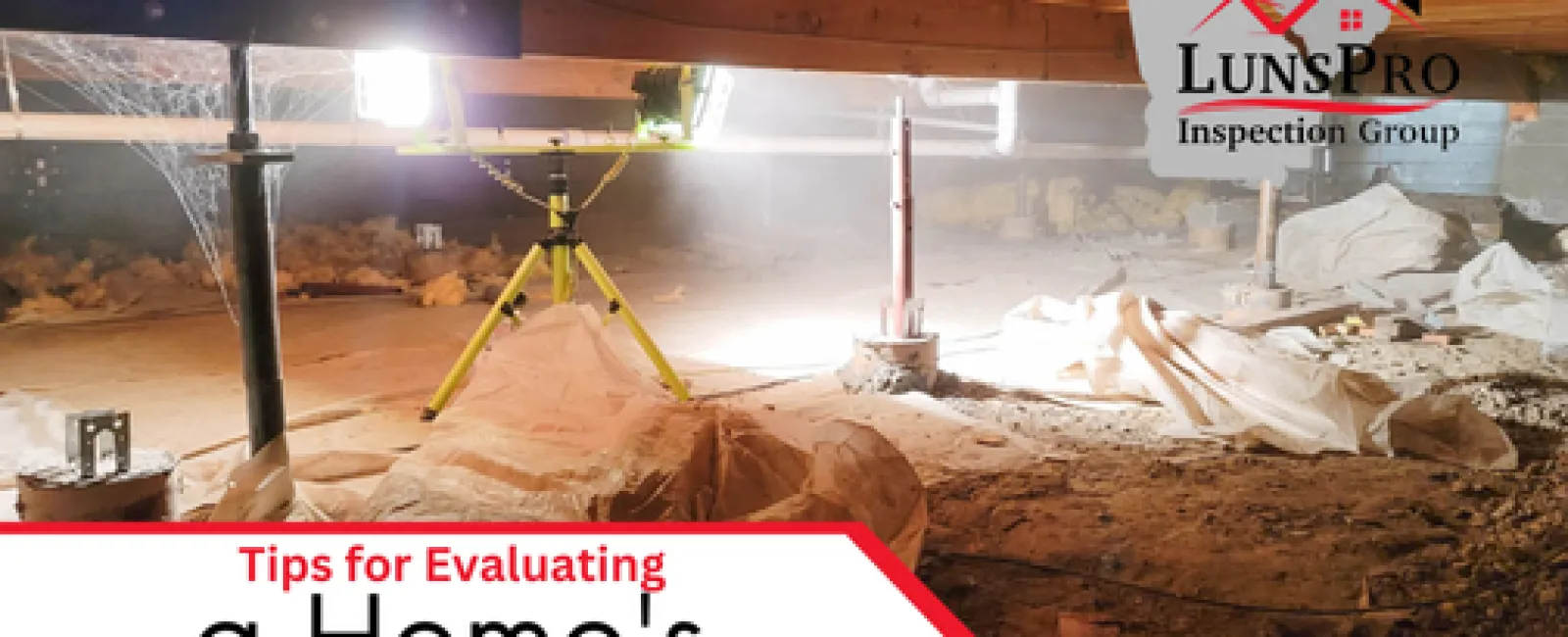A home's crawl space often goes unnoticed during routine maintenance, but it plays a crucial role in the overall health and stability of the structure. For homeowners and prospective buyers, understanding how to properly evaluate this area is essential. Crawl spaces, typically found in homes without basements, act as a buffer between the home and the ground, housing important systems like plumbing, electrical wiring, and HVAC components. Yet, they are also prone to moisture issues, mold growth, and even pest infestations if not maintained properly.
At LunsPro Inspection Group, our comprehensive home inspections, especially in regions like the metro Atlanta area, include a detailed crawl space evaluation. Our services, such as Atlanta residential and commercial home inspections, ensure that critical areas, including the crawl space, are thoroughly inspected to prevent potential problems down the line. Whether you're a buyer, seller, or homeowner, learning how to assess a crawl space can help you identify potential issues and maintain the long-term health of your property.
In this guide, we'll break down practical tips for evaluating a crawl space, key warning signs to watch for, and how a professional Atlanta, Georgia home inspector from LunsPro Inspection Group can assist in ensuring your home remains in top condition.
1. Understanding the Structure of a Crawl Space
Before diving into the evaluation tips, it's important to understand the structure of a crawl space. Crawl spaces are generally 1 to 3 feet tall and are designed to provide access to the home's systems. They are often ventilated to prevent moisture buildup, but in some cases, they may be sealed or encapsulated to create a dry environment.
Common elements found in a crawl space include:
- Foundation walls: These support the entire house and should be stable and free from cracks.
- Vapor barriers: Typically made of plastic sheeting, these are placed on the ground to reduce moisture transfer from the soil.
- Insulation: This helps to regulate temperature and prevent heat loss.
- Ductwork, plumbing, and electrical components: These systems should be easily accessible for maintenance and repair.
2. Checking for Moisture and Mold
Moisture is one of the biggest threats to the structural integrity of a home's crawl space. If moisture is not properly controlled, it can lead to the growth of mold and mildew, which can pose significant health risks to the occupants. Start by checking for dampness, standing water, or signs of previous water intrusion, such as discoloration on the walls or floor.
Atlanta mold and air quality testing, offered by LunsPro Inspection Group, is essential for detecting any hidden mold issues in a home's crawl space. Mold can spread quickly in dark, damp areas, making early detection key to preventing further damage.
3. Inspecting Insulation and Vapor Barriers
Insulation and vapor barriers play a critical role in regulating moisture and temperature in a crawl space. Ensure that all insulation is intact and not showing signs of wear, sagging, or moisture damage. Damaged insulation can lead to energy inefficiency and even provide a nesting place for pests.
Vapor barriers, which help prevent moisture from the soil rising into the crawl space, should also be checked for tears or wear. A damaged or missing vapor barrier can cause excessive moisture, leading to mold growth or wood rot.
4. Foundation and Structural Issues
Cracks in the foundation walls or uneven floors above the crawl space can indicate structural problems. These issues may arise due to settling soil, poor construction, or water damage. While small hairline cracks may not be cause for immediate concern, larger cracks should be evaluated by a Atlanta home inspector from LunsPro to determine if repairs are needed.
Additionally, look for any signs of sagging or damaged joists. Wood rot or termite damage can compromise the structure's integrity, leading to costly repairs if not caught early.
5. Evaluating for Pest Infestations
Crawl spaces are prime targets for pests like termites, rodents, and even larger animals like raccoons. These pests can cause serious damage to a home's foundation, wiring, and insulation. Regular Atlanta residential and commercial home inspections by LunsPro include pest evaluations to ensure no unwelcome guests have made your crawl space their home.
Termites, in particular, are a common issue in Atlanta homes. Our professional team uses Atlanta drone inspections and other advanced technologies to detect potential infestations in hard-to-reach areas.
6. Proper Ventilation
Proper ventilation is crucial in preventing moisture buildup in a crawl space. Check the air vents for obstructions like dirt or debris. If the crawl space is encapsulated, ensure that the dehumidification system is working correctly to maintain a dry environment.
Homes with poor ventilation can experience issues with moisture, leading to mold and poor air quality. An Atlanta radon testing service from LunsPro can also help in detecting dangerous radon levels that could accumulate in poorly ventilated crawl spaces.
7. Seeking Professional Help
While a homeowner can perform a preliminary inspection of the crawl space, nothing replaces the expertise of a Atlanta, Georgia home inspector. LunsPro Inspection Group's experienced professionals offer a comprehensive evaluation, using advanced tools like thermal imaging, moisture meters, and Atlanta drone inspections to provide a thorough analysis of the crawl space and other critical areas.
Evaluating a home's crawl space is crucial for maintaining the health, safety, and longevity of the property. Moisture problems, pests, structural issues, and poor ventilation can all contribute to the deterioration of this space if not addressed promptly. By understanding the basics of crawl space evaluation and recognizing the warning signs, homeowners can take proactive steps to prevent serious damage.
At LunsPro Inspection Group, we offer thorough Atlanta home maintenance services, ensuring that all aspects of your home, including the crawl space, are well-maintained and inspected. Regular inspections, coupled with our specialized services like Atlanta septic and sewer scope inspections, Atlanta pool inspections, and Atlanta radon testing, provide peace of mind that your home is in good hands. If you're in Atlanta or anywhere in Georgia, and need assistance with a home inspection, don't hesitate to reach out to our expert team for a detailed evaluation.

